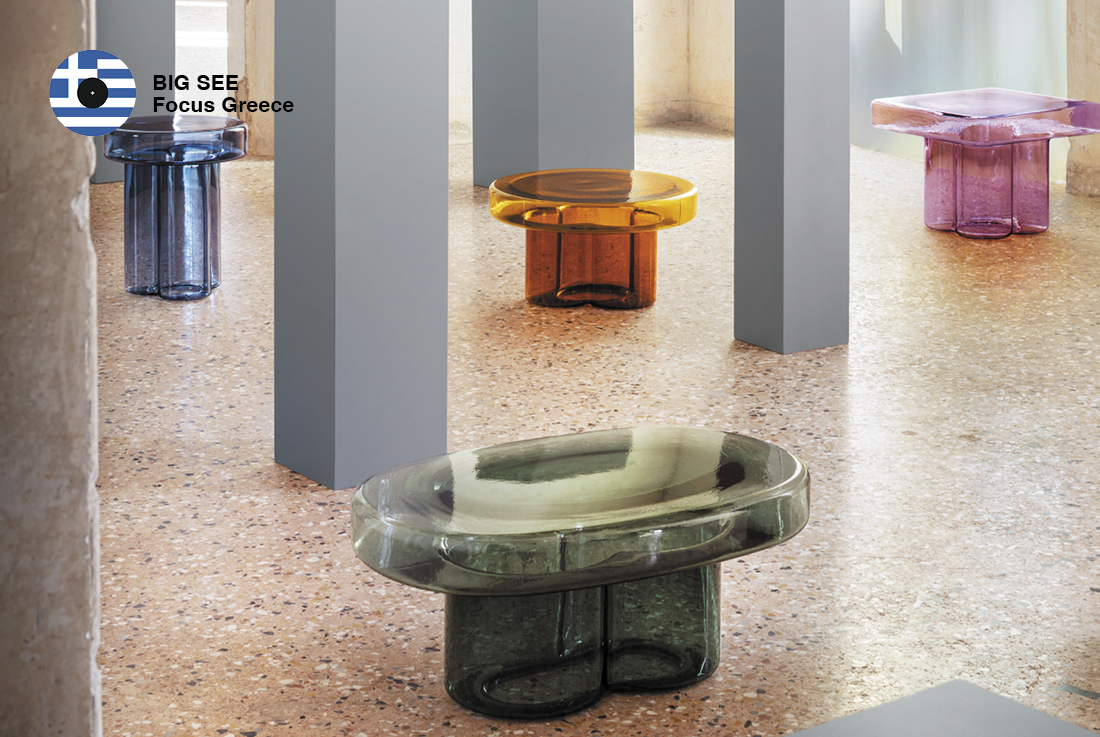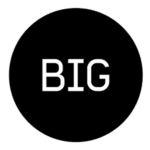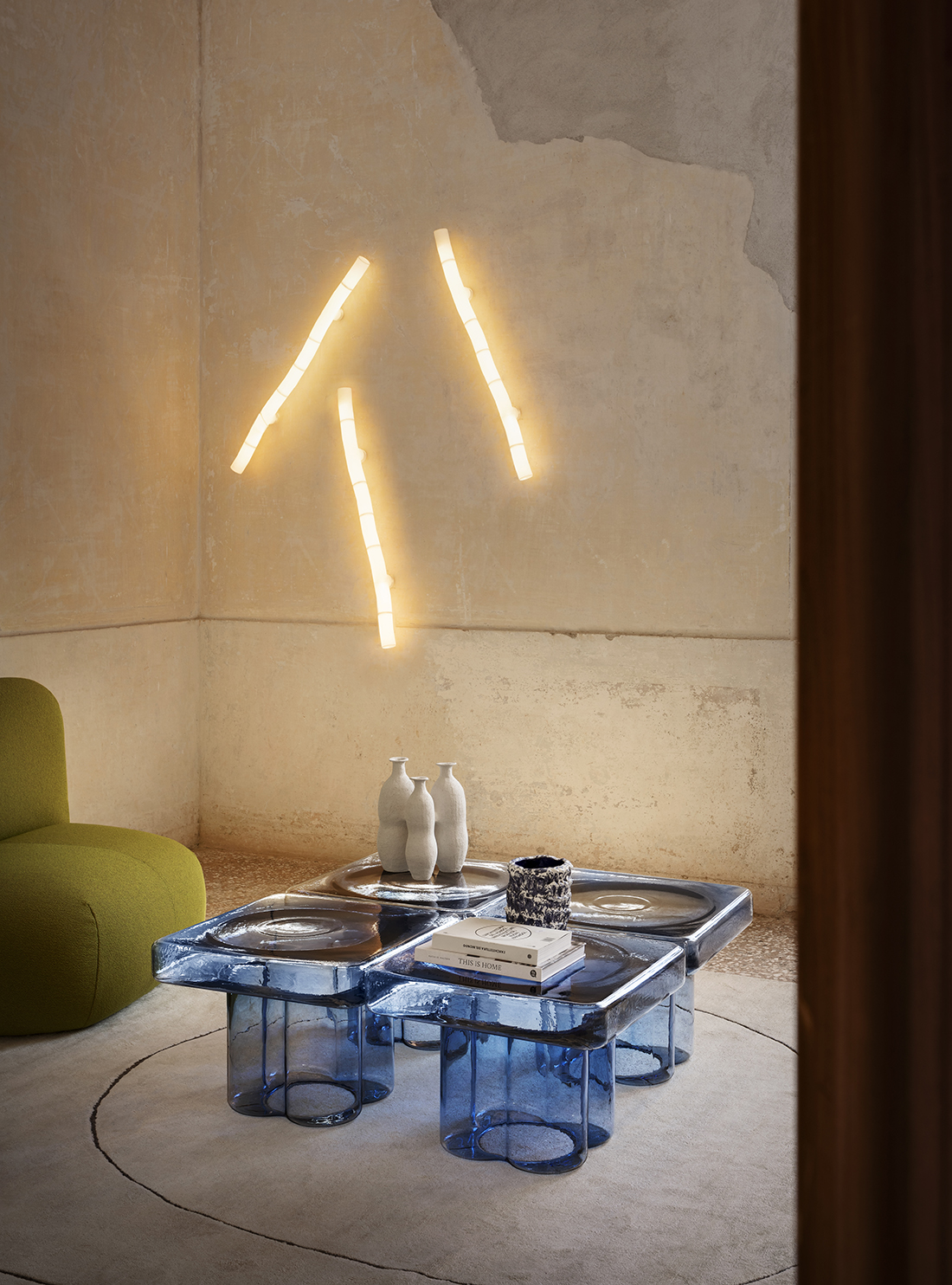
Q: Working with Murano glassblowing must be special for a designer. How do you navigate the process with the artisans, and when does the material become inspiration versus constraint in shaping Soda?
A: Working with Murano Glass is indeed very special and I am grateful for this to my good friends in Miniforms. The project was a commission, without this opportunity it would be impossible for me to work with this material. Usually we, the designers, don’t have access to this material, especially for big objects, if a company doesn’t fund the experiments. While as an independent designer I can develop myself a prototype in wood I can not do the same with mouthblown glass tables… Just to test I have to invest in an expensive mold!
I was very lucky with Soda because the fact that I had never worked with glass, but I had the basic knowledge how molds work, gave the freedom to think of a piece of furniture made entirely of a single piece of mouth blown glass. Till that time there weren’t similar products in the market. The artisans made my idea real without any changes, oh yes, they suggested the opening at the bottom that I like lot.
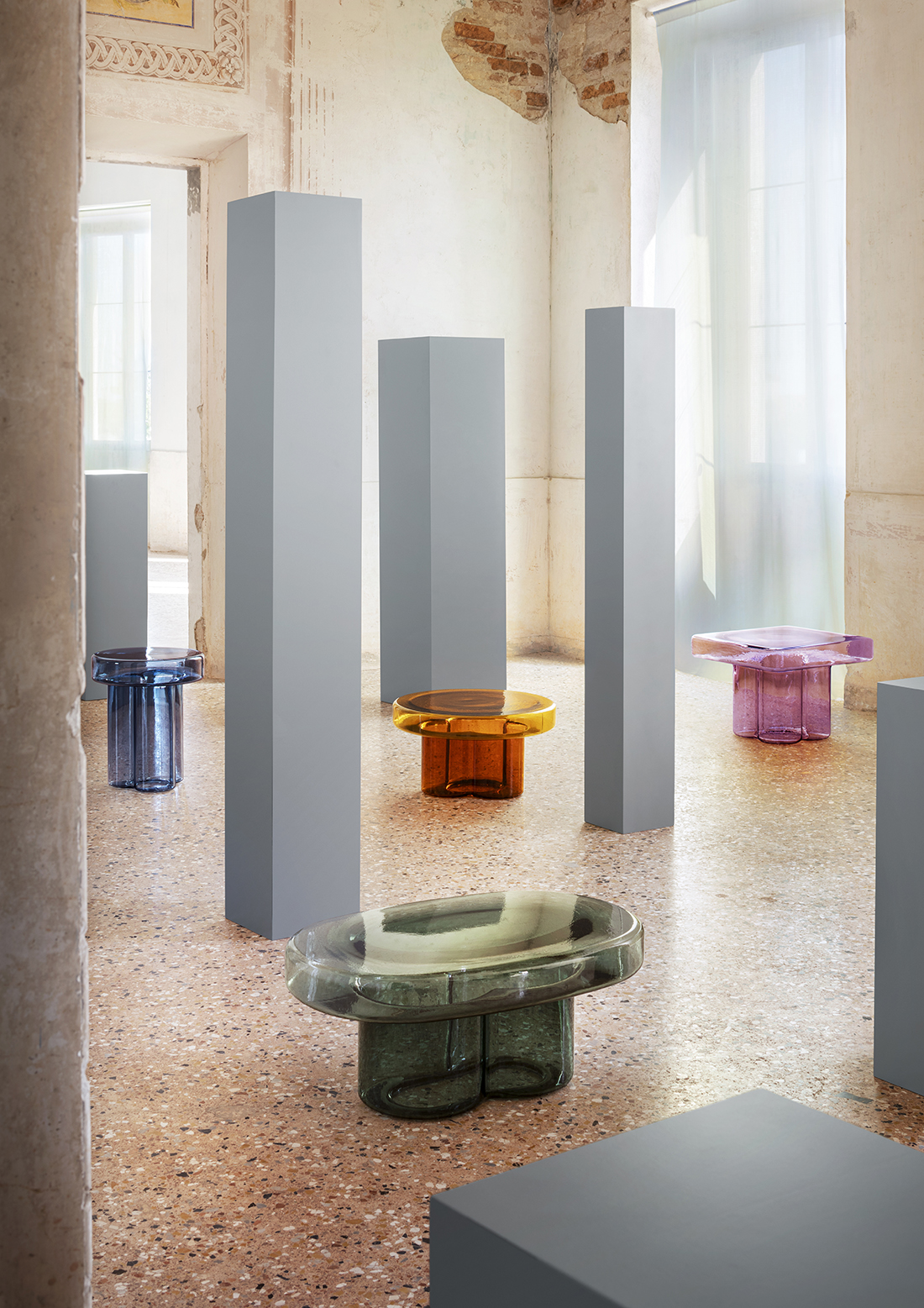
Q: You work across materials. What has glass and its transparency taught you that wood or metal has not, and how does material knowledge guide decisions from sketch to final finish and color?
A: Glass taught me that light can change a great deal of what I have designed or that actually I have designed a piece that changes as the lighting conditions change. Material knowledge is very important and usually is something you gain in the process and by working with those that already know. If you decide something that the artisan says that not feasible you don’t have to give up at once but if a after a lot of negotiation, he insists then you have to make changes or to design something else…
“Glass taught me that light can change a great deal of what I have designed, or that actually I have designed a piece that changes as the lighting conditions change.”
Q: You have designed for many years. How has your approach evolved with experience, and how do you see the wider culture around product design and production changing?
A: I started designing later in my life, I was already 33 when I attended to the school to study product design but yes, it’s been quite a while since that time. I believe that my approach hasn’t changed a lot. Still trying to design simple, with a strong character, and functional products that hopefully someone would like to co-exist for a longtime. Other factors like aesthetics, influences may have changed/evolved.
Product design has been affected by the social media and fast fashion era like many other sectors. Products come and go very fast like cheap clothes and the majority of us we only see them in images. We never touch them…”
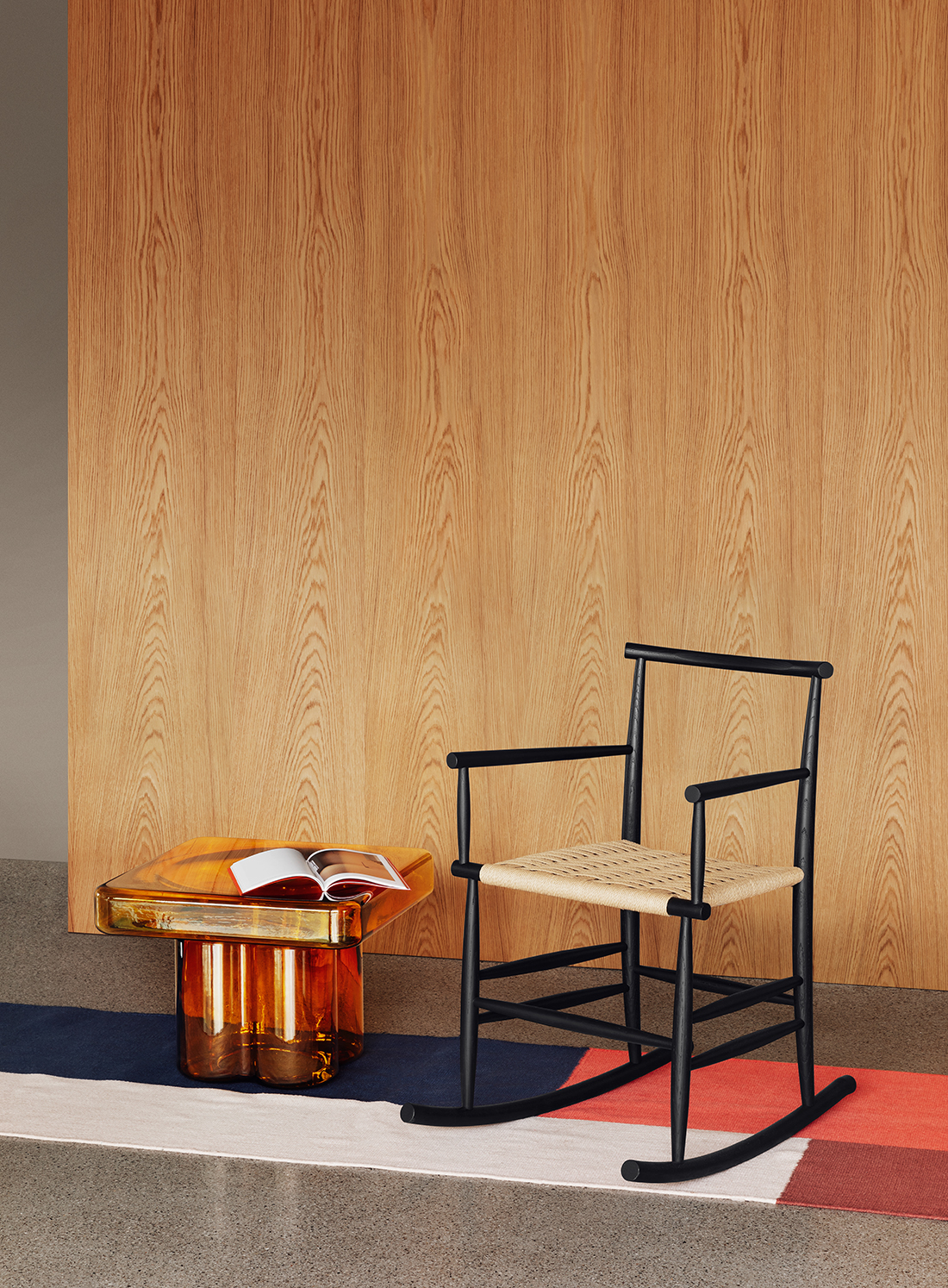
About Soda Tables
Soda tables are Yiannis Ghikas’s the latest collaboration with the Italian brand Miniforms, named after one of the three main ingredients of glass, the material out of which the tables are made.
Throughout Soda’s research and design process, they were astounded at the lack of glass-blown products of this size and kind. It was only later that they realized it is because of the technical difficulties inherent in the handling of such an object, as well as the degree of expertise required to do so. An expertise possessed by a handful of highly skilled artisans in the Italian island of Murano.
Among their main objectives was to use one of the most characteristic attributes of glass in their advantage: its transparency. Thus, they designed an object with such a geometry that allows it to play with light and shadow, creating different shapes as one’s perspective changes.
“Soda was born upside-down, with a puff of air. It weighs 20 kilos, and it is blown, drawn out and shaped by three master glassmakers. The result is a single volume of glass with three large petals forming the stem. In Soda, the glass vibrates: its tough, hammered surface fragments its transparency to give a primitive aesthetic. This is artistic value granted to an industrial product.”
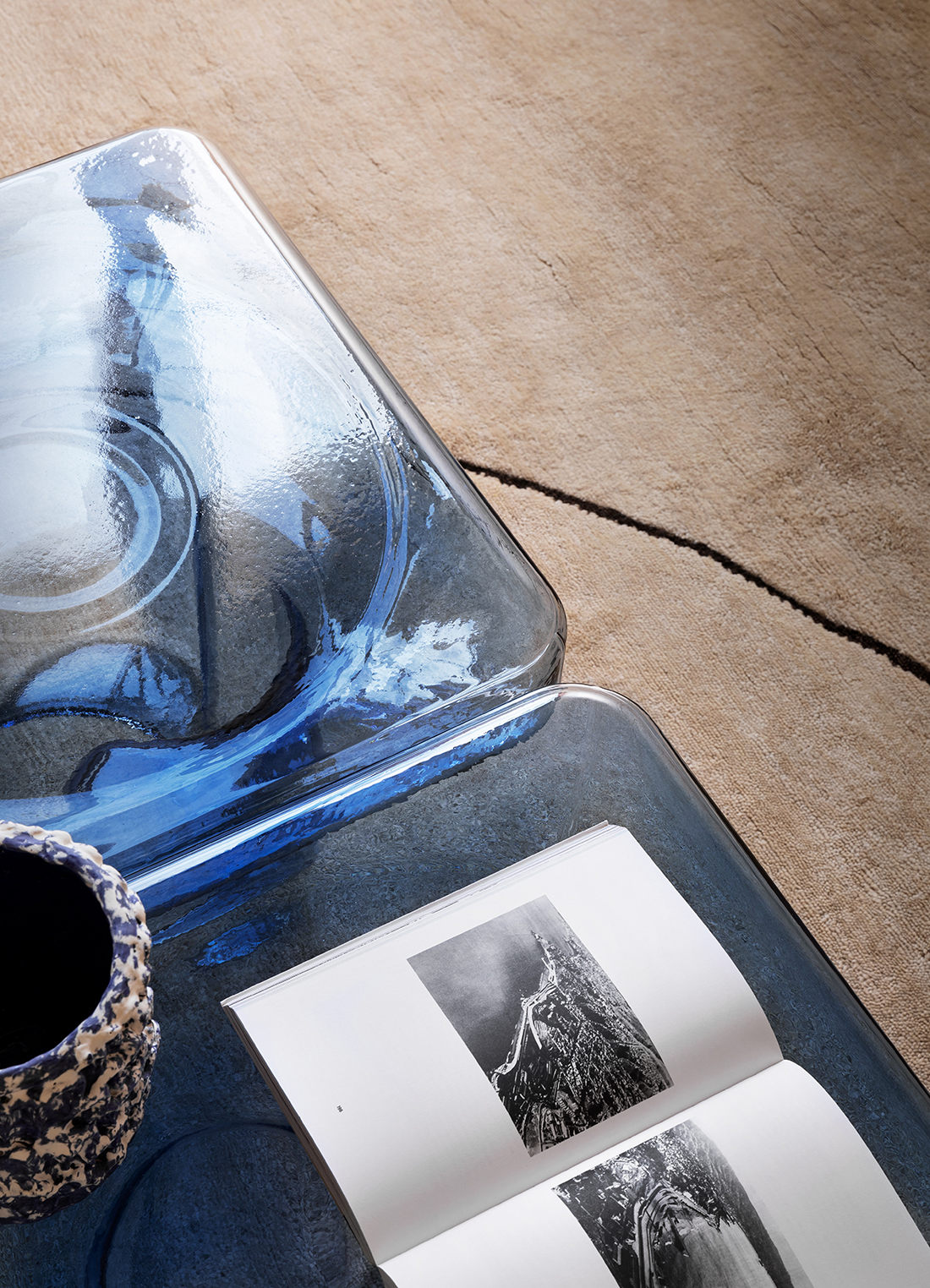
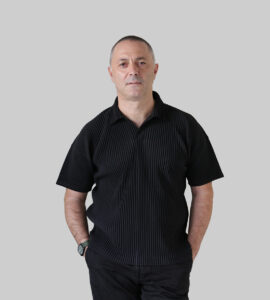
Yiannis Ghikas
Yiannis Ghikas was born in Athens Greece. With his background encompassing Computer Science alongside Design, he employs functionality as the ultimate purpose of his designs while explores their potential emotive responses. He sees design as a process of satisfying needs either tangible or intangible.His Soda tables for the Italian brand Miniforms, made entirely from mouth blown Murano glass, drew immediate international attention and received multiple awards. He has also deepened his practice through a design residency in Japan and collaborations with companies in Belgium, Italy, Greece, Japan and elsewhere.
Project
Soda Tables
Author:
Yiannis Ghikas
Manufacturer:
Miniforms
Year of Completion:
2023
Websites:
www.yiannisghikas.com
www.miniforms.com
Instagram:
@yiannisghikas
@miniformsofficial
Email:
info@yiannisghikas.com
Edited by:
Blažka Drnovšek


